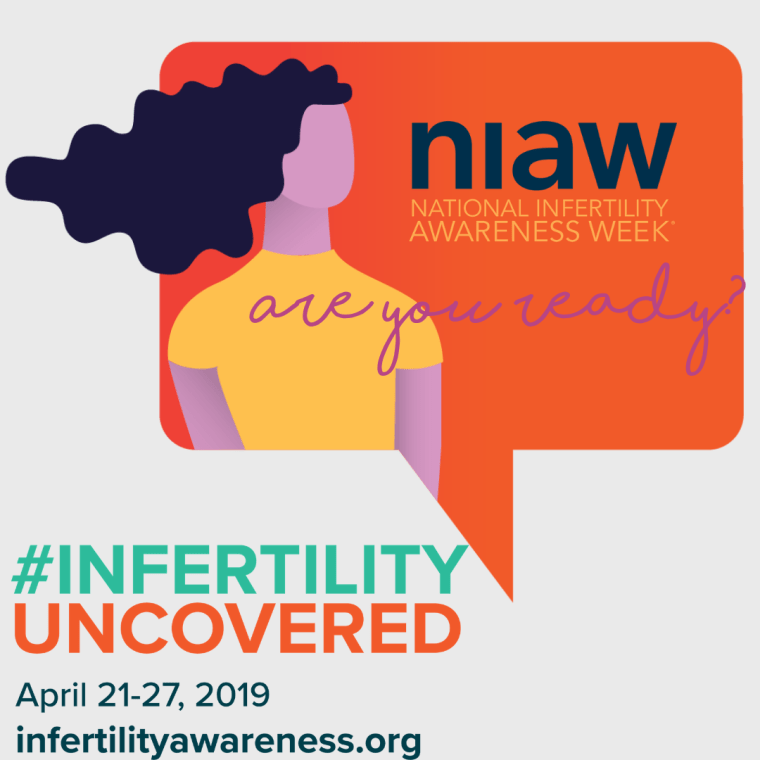Infertility: The Impact of Stress and Mental Health
Infertility, though often not talked about, is common. An estimated one in eight couples (or 12% of married women) have trouble getting pregnant or sustaining a pregnancy. There are a range of complex connections between mental health and infertility.
 A recent American Psychiatric Association (APA) Resource Document notes that the “psychological impact of being unable to conceive is a profound loss and significant life crisis.” The feelings around and reactions to infertility may include anger, sadness, shame or grief. Couples may feel isolated and stigmatized and find it very difficult to be around other couples with children.
A recent American Psychiatric Association (APA) Resource Document notes that the “psychological impact of being unable to conceive is a profound loss and significant life crisis.” The feelings around and reactions to infertility may include anger, sadness, shame or grief. Couples may feel isolated and stigmatized and find it very difficult to be around other couples with children.
Infertility is defined as the “inability to conceive after 12 months of regular, unprotected sexual intercourse or an impairment of a person’s capacity to reproduce either as an individual or with his or her partner.”
Stress, Anxiety, Depression and Grief
The experience of infertility and its treatments is highly stressful and can interfere with many aspects of life, including work, family, and relationships.
Some research has found a link between infertility and anxiety and depression, though how they are linked is not clear. Having anxiety and depression may contribute to infertility and the distress of infertility and treatment often leads to anxiety and depression. Up to 40% of women experiencing infertility have a psychiatric diagnosis, most often depression or anxiety.
 Both men and women experience higher levels of anxiety and depression during in vitro fertilization (IVF) or other treatments compared to the general population. However, not surprisingly, women report greater psychological distress than men. Very few individuals seek psychiatric help—one study found less than 7% sought care. Mental health care such as psychotherapy or infertility counseling, can help reduce the stress associated with infertility and treatment.
Both men and women experience higher levels of anxiety and depression during in vitro fertilization (IVF) or other treatments compared to the general population. However, not surprisingly, women report greater psychological distress than men. Very few individuals seek psychiatric help—one study found less than 7% sought care. Mental health care such as psychotherapy or infertility counseling, can help reduce the stress associated with infertility and treatment.
“I believe that all people who are experiencing infertility are grieving parents,” psychotherapist Beth Jaeger-Skigen writes on the RESOLVE* website. “Grief is never linear and grief from infertility is particularly nonlinear. People experience infertility cycles with both hope and loss. The unique part of the infertility process is that the losses are compounding.”
Infertility Treatment and Mood
The medications often used to treat infertility can also affect mood and may contribute to symptoms of anxiety, depression and irritability. These effects are made worse, the APA Resource Document notes, by the “high rates of failure in fertility treatments, the invasive nature of medication administration, examinations, tests, and the prolonged pursuit of parenthood often for years without success.”
When mood symptoms become severe or are not responding to therapy and support, medication may be considered. “Women often worry about the impact of taking psychiatric medication when trying to conceive,” notes Madeleine Becker, M.D., lead author of the APA Resource Document. “Although many of these medications are necessary and helpful in managing mood symptoms, some can negatively impact fertility. Your doctor can help to find the best option for you, weighing risks and benefits. Optimizing mental health is an important component in managing infertility, so it is important to seek treatment when symptoms are persistent and/or impairing.”
Tips for Coping
- Give yourself permission to cry and be angry. Don’t try to shut off your feelings
- Give your spouse/partner permission to feel and cope differently than you.
- Tell your spouse/partner how you want to be helped. If you need to pass up the family gathering that features five nieces and nephews under two, then say so. If you want to be hugged, or massaged, or left alone for a few minutes, or just listened to without any response, you’ll be more likely to get what you want if you ask.
- Get more information. One of the worst facets of stress is uncertainty about the future. You can’t get a crystal ball, but you can reduce some of your uncertainty by seeking information.
- Connect with others. Support groups can help you connect with others who understand. Free support groups in can be found through RESOLVE.
Source: adapted from resolve.org
National Infertility Awareness Week
National Infertility Awareness Week is April 21 – 27, 2019. The theme of #InfertilityUncovered is intended to raise awareness about the lack of access to family building options and need for emotional support for millions of women and men struggling to build a family.
References
*RESOLVE: The National Infertility Association
American Psychiatric Association. Resource Document on Psychiatric Aspects of Infertility, Feb. 2019
